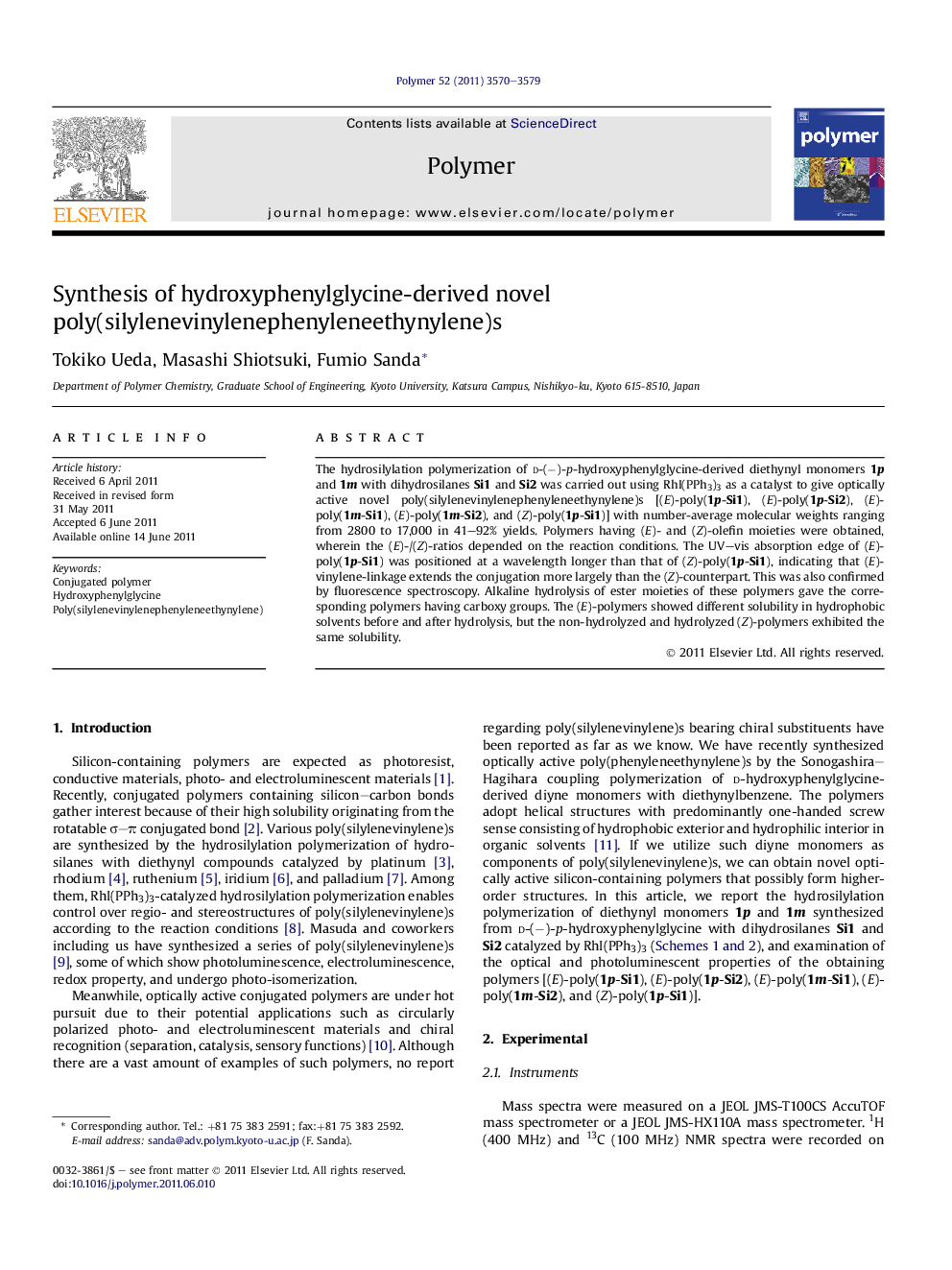| Article ID | Journal | Published Year | Pages | File Type |
|---|---|---|---|---|
| 5184273 | Polymer | 2011 | 10 Pages |
The hydrosilylation polymerization of d-(â)-p-hydroxyphenylglycine-derived diethynyl monomers 1p and 1m with dihydrosilanes Si1 and Si2 was carried out using RhI(PPh3)3 as a catalyst to give optically active novel poly(silylenevinylenephenyleneethynylene)s [(E)-poly(1p-Si1), (E)-poly(1p-Si2), (E)-poly(1m-Si1), (E)-poly(1m-Si2), and (Z)-poly(1p-Si1)] with number-average molecular weights ranging from 2800 to 17,000 in 41-92% yields. Polymers having (E)- and (Z)-olefin moieties were obtained, wherein the (E)-/(Z)-ratios depended on the reaction conditions. The UV-vis absorption edge of (E)-poly(1p-Si1) was positioned at a wavelength longer than that of (Z)-poly(1p-Si1), indicating that (E)-vinylene-linkage extends the conjugation more largely than the (Z)-counterpart. This was also confirmed by fluorescence spectroscopy. Alkaline hydrolysis of ester moieties of these polymers gave the corresponding polymers having carboxy groups. The (E)-polymers showed different solubility in hydrophobic solvents before and after hydrolysis, but the non-hydrolyzed and hydrolyzed (Z)-polymers exhibited the same solubility.
Graphical abstractDownload full-size image
